There’s a lot to be afraid of these days. If a highway shooter doesn’t get you, the newest virus will. Danger lurks in the Cheetos bag (because who can eat just one) and sugar and salt are hidden in everything you love (which is why bad foods taste so good).
Politics are resulting in people going to the emergency room with heart palpitations and spikes in blood pressure. Anyone who actually watches the stock market probably either keeps a glass of gin by easy chair or has started mumbling incessantly.
You can’t win. It’s beginning to feel like the world is getting really, really small.
That’s the bad and the good news. Because when we think a problem is just too huge for us to do anything about, we tend to fall into inertia. Gee, it’s a shame about that, but I’m so far away and there will be people there who can help.
But when that problem knocks on our door, is waiting inside our gym, our wallet, our hamburger or our sinus passages, things change. Now we are engaged. We are paying attention.
And we might actually listen to the experts.
Expertise has come under extensive attack in the last few years. There seems to be a wave of “I know better than you” or “Why should I believe you” that has taken over the minds of a lot of people…many of them younger than us boomers. In his book, “The Death of Expertise: The Campaign Against Established Knowledge and Why it Matters,” author Tom Nichols takes a close look at this trend.
He writes: “Americans have reached a point where ignorance, especially of anything related to public policy, is an actual virtue. To reject the advice of experts is to assert autonomy, a way for Americans to insulate their increasingly fragile egos from ever being told they’re wrong about anything. It is a new Declaration of Independence: No longer do we hold these truths to be self-evident, we hold all truths to be self-evident, even the ones that aren’t true. All things are knowable and every opinion on any subject is as good as any other.”
That’s pretty scary stuff. It’s bad enough science is taking a beating. Textbooks are being rewritten with events and people omitted. So called “news” channels omit stories because they might be objectionable to their biased viewers. What really should give everyone pause is how it’s become acceptable to just make up facts. To declare, “well, sure you read or heard that in the New York Times (for example), but they probably made that up.”
Hang on.
Of course reporters at any publication can make something up. But at a prestigious, proven news source such as the NYT, there’s a system in place to guard against that. It’s called getting multiple sources. It’s called confirmation. It’s a legacy of holding to the truth. It’s not some manufactured TV network with pretty and handsome hosts giggling over the latest atrocity committed by the executive branch.
As Nichols points out, the problem is when we decide we know more than medical researchers, more than the physicists and environmental scientists, more than the experts in climate and horticulture, and yes, more than seasoned, experienced, intelligent journalists.
When did we (ahem)…get so “smart”?

I hope that as boomers and beyond, we can remember how we grew up understanding there are always people shouting on the corner, and there also are people who truly follow an oath of honesty and accuracy. People who study their professions for years and become certified as physicians, engineers, scientists, economists and psychologists. They chose to dedicate themselves to achieving a certain level of expertise.
And they deserve our respect. Because now is not the time to decide we know as much, or heaven forbid, more than they do about such serious matters.
Questioning authority is something our generation knows a lot about. It’s a very healthy thing to always go. Frankly, I’m amazed that more people aren’t doing this everyday….questioning any blowhard that makes up whatever serves him or her.
THAT is who needs to be questioned. Not the true experts.
So as the headlines come and go and fears rise about what’s happening the world and right where we are, let’s remember to listen to those who TRULY know what they are talking about. The rest is just noise.
“An investment in knowledge pays the best interest.” Benjamin Franklin

Recent Comments